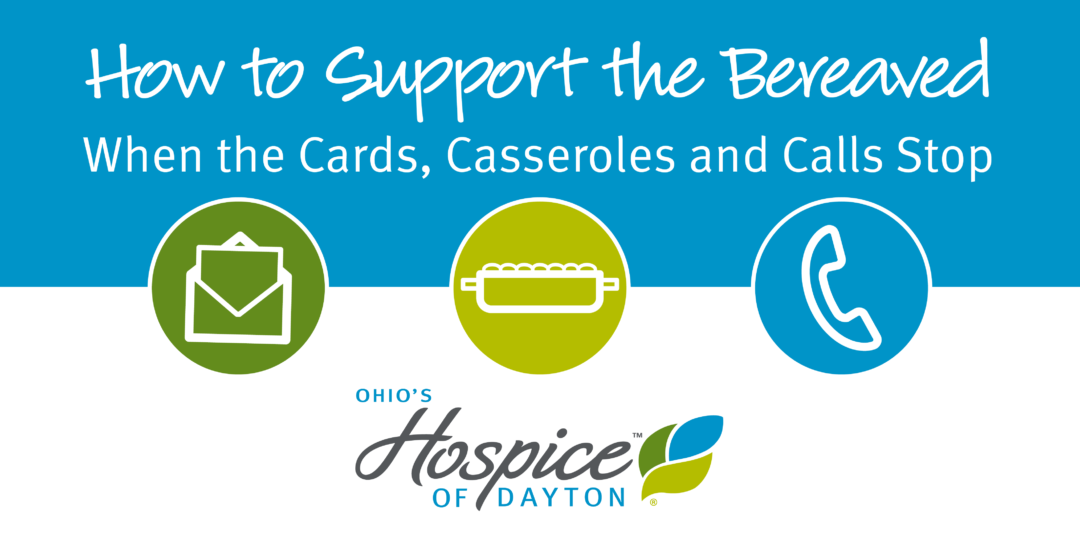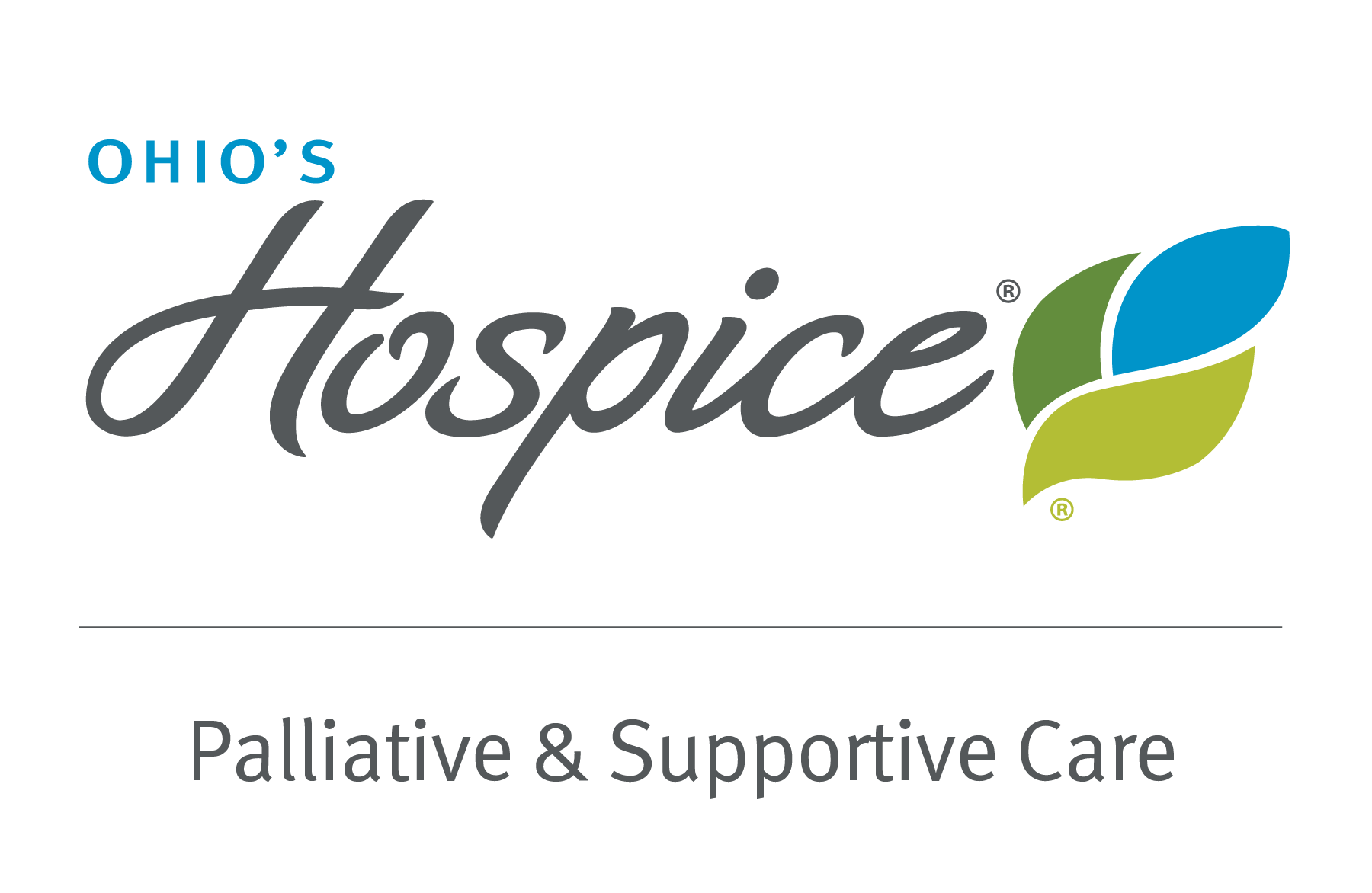
How to Support the Bereaved When the Cards, Casseroles and Calls Stop
When someone dies, many people struggle with what to say to grieving family members or friends. They want to help and support the bereaved, but they don’t know how to do so. Sometimes, they make insensitive, judgmental comments that are offensive and hurtful. Or, they don’t say anything at all because they simply don’t know what to say.
“Those who are grieving need to know you are there for them and care for them,” said Deb Holt, a bereavement counseling professional with Ohio’s Hospice. “You can bring comfort to someone who is grieving by sitting with that person and listening to them.”
People are very supportive before and during the funeral. But after the funeral, the three C’s — cards, casseroles and calls — stop. “The funeral is not the hardest part,” Holt said. “The grief gets harder the month after the funeral.”
When the cards, casseroles and calls stop, friends and family should continue to provide support throughout the year. “You can provide so much comfort to the grieving person by listening, sharing memories of the deceased and celebrating that person’s life,” Holt said.
Becky Graham, a volunteer with Ohio’s Hospice of Dayton’s grief counseling groups, agrees with Holt. Graham’s husband, Dick, died under hospice care after battling lung cancer. “It is so special when a friend or family members talks about your loved one,” said Graham, who had been married to her husband for 27 years. “Sure, it brings tears to our eyes. But it’s not a bad thing.”
She recommends encouraging the grieving person to talk about the loss of his or her loved one. “Most all, be a good listener,” she said. “It’s so special and comforting when friends stop by to talk and listen or call you on the phone.”
When trying to comfort a grieving person, Holt recommends five things to avoid.
- Don’t make insensitive comments such as “everything happens for a reason; this is God’s plan; at least it’s not cancer; at least it happened fast; or at least your loved one is no longer in pain.” Those comments are not comforting. The bereaved person feels that you are minimizing their pain.
- Don’t have unrealistic expectations for the bereaved person. There is no timeline for grief, and there is no right or wrong way to grieve. Be patient and encourage the bereaved person to be patient with themselves.
- Don’t expect their grief to be the same as yours, if you have experienced a loss. Each person’s grief differs. You can’t assume you know how someone feels.
- Don’t say, “If you need anything, just call me.” Be specific in what you can offer someone who is grieving.
- Avoid asking the person how they are doing. Instead, say, “I’m thinking about you. How can I help? What do you need help with today?”
To support a grieving person, Holt recommend five things you can do.
- Let your family member or friend know that you are there. Offer your presence. Listen to them.
- Offer practical help such as bringing them groceries, running other errands or helping with their children. Think through what the bereaved person might need.
- Continue to support that person after the funeral for months. Be thoughtful of holidays, birthdays and anniversaries. Call your family member or friend on those days. Send a note.
- Use the deceased person’s name and share memories with the family member. It’s like a gift to the grieving person. Mentioning memories months and years after the funeral can be a comfort to the grieving person.
- Say “I’m thinking about you.” Support the grieving person in small ways with notes, gifts and reminders.
Author Profile
Latest entries
 Media ReleaseJanuary 1, 2024Community Hospice to Join Ohio’s Hospice Strategic Partnership
Media ReleaseJanuary 1, 2024Community Hospice to Join Ohio’s Hospice Strategic Partnership #CelebratingLifesStoriesNovember 21, 2023Priesthood, Shelters and Hospice Care: A Life of Service for Barbara Parini
#CelebratingLifesStoriesNovember 21, 2023Priesthood, Shelters and Hospice Care: A Life of Service for Barbara Parini News and UpdatesJuly 28, 2023Ohio’s Hospice Volunteer Experiences Hospice Care as a Loved One
News and UpdatesJuly 28, 2023Ohio’s Hospice Volunteer Experiences Hospice Care as a Loved One News and UpdatesJuly 19, 2023The Not-for-Profit Difference
News and UpdatesJuly 19, 2023The Not-for-Profit Difference

